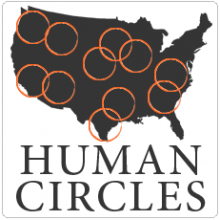protect

Protester holding placard, 2010. Image via Wylio. http://bit.ly/rXM1Om
Earlier this week, the Burlington Free Press broke the story about the circulation of a provocative online survey among members of Sigma Phi Epsilon — the largest fraternity at the University of Vermont — which included the question: "If I could rape someone, who would it be?"
On the questionnaire, fraternity members were asked to respond to questions ranging from the benign (“Who’s my favorite artist?”) to the debauched (“Where in public would I want to have sex?”) But it was “Personal Question #3” — the hypothetical rape question — that drove the university to put the fraternity on suspension.
The University of Vermont’s chapter is under investigation by Sigma Phi Epsilon's national office. Women’s and other human rights groups in the Burlington area circulated petitions, gathered for protests on campus, and have called on the university to terminate the fraternity once and for all.
This isn't the first time the men of University of Vermont’s Sigma Phi Epsilon aka “SigEp” – a fraternity founded on the principals of “Virtue, Diligence, and Brotherly Love” – have gotten themselves in trouble. A few years ago, SigEp’s national office temporarily revoked the school’s charter, stating that the house’s hazing rituals and other risky behaviors made the organization vulnerable to lawsuits.
It’s impossible to ignore the significance of the most recent SigEp transgression in light of a very different survey released by the Centers for Disease Control and Prevention (CDC) the day after the Vermont story broke.
The CDC study found that nearly 1 in 5 American women have been raped.
The New York City Human Circle will be replicated throughout across the nation, when faith leaders host Human Circles as members of the Sojourners National Mobilizing Circle, which is bringing together faith and community leaders to organize faith-rooted actions in their communities.
The purpose of these circles is not only to lobby for the poor but also with them.
As you are reading this, the Congressional Joint Select Committee on Deficit Reduction (a.k.a. The Super Committee) is making choices about who and what our nation will protect.
Will we protect the wealthiest 2 percent by preserving $690 billion in Bush era tax cuts?
Or will we protect children by preserving $650 billion in special education, student aid, and assistance to low-income schools?
Will we protect corporations by preserving $97.5 billion in subsidies for big business or will we protect families by preserving $98 billion in Head Start and child care programs?
We have 32 days left to remind Congress that, "Oppressing the poor in order to enrich oneself, and giving to the rich, will lead only to loss" (Proverbs 22:16).
